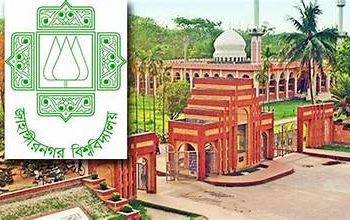Civil engineering is a discipline that deals with the design, construction, and maintenance of the physical and naturally built environment, including works such as residences, institutional buildings, roads, bridges, canals, dams, airports, sewerage systems, pipelines, and railways.
The Department of Civil Engineering comprises of four divisions:
(i) Structural Engineering, (ii) Environmental Engineering, (iii) Transportation Engineering (iv) Geotechnical Engineering.
1. Structural Engineering Division:
The Structural Engineering Division is manned by a group of highly qualified teaching professionals having a wide range of teaching and research experiences at home and abroad. The division is equipped with the state of the art hardware and software facilities for carrying out testing of various structural materials and providing expert consultancy services in the field of structural engineering. The consultants of this division are the leading structural engineering experts of the country with wide range of experiences.
2. Environmental Engineering Division:
The environmental engineering division has been providing testing design and consultancy services for more than three decades in diverse areas including water supply: water, waste water and industrial waste quality treatment; solid and hazardous waste management; biogas technology; air and noise pollution; environmental management planning; environmental auditing; environmental site assessment, and environmental impact assessment and monitoring. Over the years, the division has gained considerable expertise and experience in these areas and has developed a solid reputation both at national and international levels. The group of highly qualified teaching professionals of this division has immense teaching and research experiences at home and abroad.
3. Transportation Engineering Division:
The Transportation Engineering Division consists of a group of highly qualified researchers and professionals having a wide spectrum of teaching and research capabilities. The Transportation Engineering Division has been providing testing, design and consultancy services since its inception in diverse areas including quality control and testing of highway materials, geometric design of highways, structural design of pavements, field investigation, traffic control and management, NMT issues, accident analysis and safety measures, feasibility study of transport projects, preparation and evaluation of contractual documents etc. Highway and transport specialists of this division have extensive experience in highway materials, design, maintenance and improvement works, survey works, transport economics, transport planning and modeling, traffic control and management, traffic safety, GIS and simulation works. Well equipped laboratories include Highway Engineering and Material Laboratory, Traffic Engineering and Safety Laboratory, Remote Sensing and GIS Laboratory and Survey and Photogrammetric laboratory.
4. Geotechnical Engineering Division:
The Geotechnical Engineering Division has been providing testing, design and consultancy services since its inception in a number of areas including subsoil investigation, soil and rock characterization, engineering properties of rock and soil, in-situ testing of soil, physical and mechanical properties of geotextile, design and analysis of shallow and deep foundation, soil improvement, dynamic analysis of soil, seismic design of foundations, earthquake hazard analysis, development of microzonation map of different areas based on soil parameters, liquefaction data etc. over the past years this division has achieved a considerable expertise and experience in these areas and developed a wide reputation both in national and international levels. The highly qualified professionals have achieved both national and international reputation throughout the years.
Civil engineers work:
Nature provides us with plenty of resources. At the same time nature has its hostile behavior. Human beings need to tame this nature to support development activities and utilize the natural resources properly. Throughout the history of modern civilization, Civil Engineers have been doing this work and have always been at the forefront of the drive for the improvement of our standard of living. In every modern society, Civil Engineers always play the key roles in the planning, design and construction of the infrastructure that improve the modern life. From the buildings that we live in to the offices and industries we work in, the roads and bridges that we travel on, the skyscrapers that symbolize cities and define the skylines to the towers that provide electricity, the dams that protect populations to the dams that generate power, Civil Engineers have always been the essential torch bearers of human civilization. From flood mitigation to riverbank protection, design against earthquake to protection for cyclones, planning for traffic control to environmental pollution control, they strive to mitigate human sufferings on a huge range of problems.















Discussion about this post